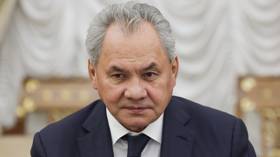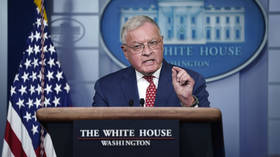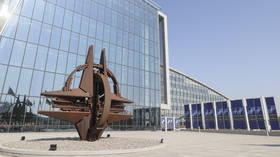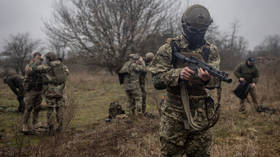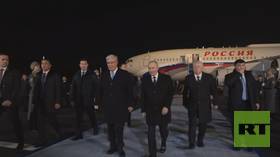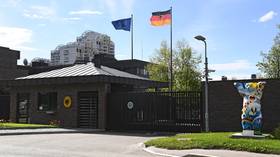War averted as Russia & Turkey reach deal on Idlib… but is peace on horizon?
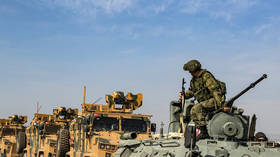
After a new agreement with Russia dispelled the specter of a major conflict arising from the recent escalation of tensions in Syria's Idlib, RT finds out whether it will be a lasting solution for Ankara and Damascus.
Damascus had launched an offensive in the northwestern province of Idlib against armed groups, which Ankara had supported as well as launching a military operation of its own. However, a heated standoff between the Syrian Army and Turkey seems to have been avoided. This was all thanks to the diplomatic efforts of Moscow and Ankara, which led to a new agreement on the troubled province following nearly six hours of negotiations on Thursday.
The conflict had threatened to spiral out of control at any minute, dragging both adversaries – as well as Syria's allies in Moscow and possibly even Turkey's NATO partners – into an all-out war.
Also on rt.com Idlib ceasefire: Putin & Erdogan reach deal on Syria de-escalation after marathon Moscow talksEvery side got what it wanted
The deal appears to do even more than prevent a war, since pretty much every side involved in the latest flare-up achieved most of its goals, short-term ones, at least. For Moscow, averting the disaster was a victory in itself, Vitaly Naumkin, president of the Institute of Oriental Studies of the Russian Academy of Sciences, told RT.
"The primary goal that… meets Russia's interests is putting an end to the fighting and removing a threat of a major war that could break out between Damascus and Ankara, in which Russia could end up being involved," he said.
Turkey's commitment to fighting terrorists in Syria also plays into Moscow's hands since Ankara agrees to something that Russia has been calling for all along. "The mere fact of such support imposes certain obligations on the Turkish side," Naumkin noted.
Turkey also "gets what it wants: a northern Idlib buffer zone, where it can deal with internally displaced persons and refugees to make sure they're not crossing into its territory," Aleksey Khlebnikov, a Middle East expert at the Moscow Carnegie Center, said.
Also on rt.com Stress test passed: Russia and Turkey continue to work in SyriaBesides, a new ceasefire means that the Syrian Army would not continue its offensive against the Turkish-backed militants, potentially pushing them away to the Turkish territory as well and Ankara does not need to intervene.
Damascus, which was not part of the talks in Moscow on Thursday, still had its interests preserved. The Syrian Army retained control over the territories it seized during the latest offensive, including the strategic M5 highway connecting the Syrian capital to the nation's second most populous city of Aleppo.
Another strategic road – the M4 highway linking Aleppo to the coastal province of Latakia – will now be patrolled by Russian and Turkish forces, providing a way for its reopening as well.
"Reopening the M4 and M5 was basically envisioned by the 2018 agreement [between Moscow and Ankara], but it never happened, so now Russia finally pushed Turkey to accept that," Khlebnikov noted, adding that it apparently was the primary strategic goal of Damascus and its allies in Moscow since the two roads "are essential for Syrian economic revival."
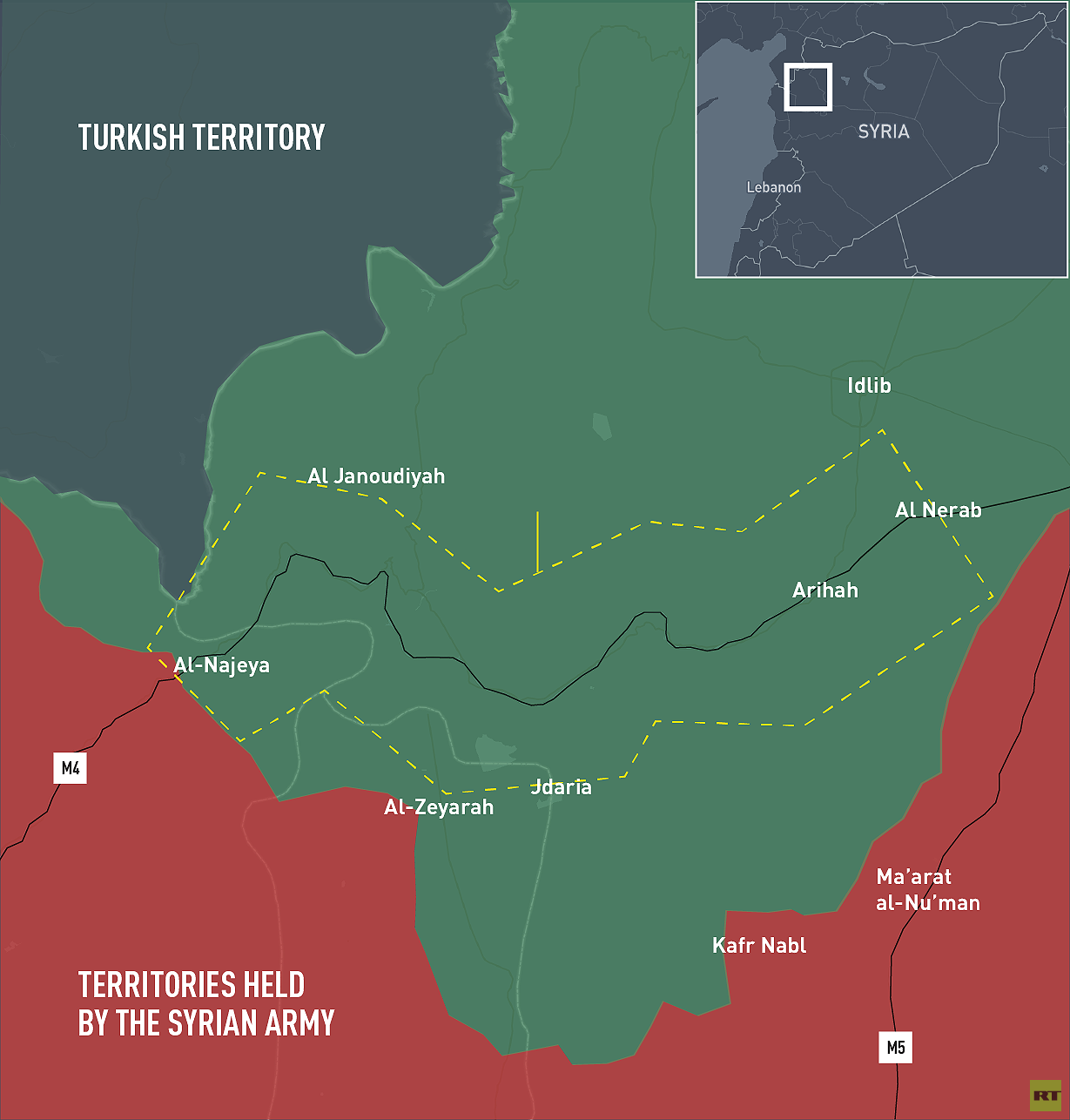
Rebuilding trust
The decision to create a security corridor along the M4 highway and the plans to deploy joint Turkish-Russian military patrols in the area might also be crucial for maintaining security in the area and avoiding further bloodshed, the analysts believe.
"That requires a certain level of trust and that means that trust is being rebuilt," Naumkin said. "We need to reduce the level of tension stirred up by the forces seeking to undermine the partnership between the two nations."
Also on rt.com Turkey-Russia ties at their highest in defense & trade, Erdogan tells Putin, as the two leaders meet to untie Idlib knotKhlebnikov believes Russia and Turkey could draw on their experience of successful joint patrols both nations previously launched in another Syrian region east of the Euphrates River.
"Using this experience now, in this Idlib zone, will definitely help to contribute to de-escalation," he said. "This will definitely help to enhance the ceasefire and general security in the area, although it cannot guarantee that the ceasefire won't be violated."
Threat persists
Yet, all those achievements do not mean that the new deal would just smoothly lead to a peaceful conflict resolution, the analysts warn, pointing to the fact that the biggest threat in the region – the terrorist groups, including an Al-Qaeda offshoot known as Hayat Tahrir al-Sham, former Al Nusra Front, are still not dealt with. And they could try and use the ceasefire to their own advantage.
"The most difficult aspect of this deal is that we didn't hear how exactly Turkey and Russia will deal with… terrorists who are based in Idlib," Khlebnikov said. He explained that Turkey might end up being tasked with separating the extremists from the "moderate" militants and pushing them out of its zone of control – something Ankara previously failed to do, prompting the Syrian Army's offensive.
"It is still unclear how Turks would take part in the fight against terrorists," Naumkin noted. He also said that it is equally unclear how the Syrian Army should respond to terrorist attacks from Idlib under the ceasefire conditions.
Also on rt.com Terrorists tried to use chemical weapons in Idlib against Syrian army, got BURNED after substance leaked – Russian MоD"It will not be an easy fight, there are many [terrorists] there. They continue their shelling and offensives. They have potential, weapons and support."
The extremist attacks could potentially lead to a new escalation of tensions in the area, which is the only major stronghold of anti-government forces on Syrian soil. However, they might not be the only concern for Damascus and its allies in Moscow, nor for Ankara.
Turkey controls quite a number of what it calls "buffer zones" on Syrian territory, including those east of the Euphrates and north of the Aleppo province. Ankara has shown no willingness to give up control over them just yet. However, since Damascus plans to eventually regain control over all Syrian territories, these issues "will ultimately have to be resolved, either bilaterally [between Moscow and Ankara] or even between Turkey and the Syrian government," Khlebnikov said.
Think your friends would be interested? Share this story!


